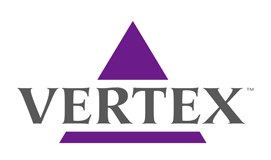Analyst Foresees Challenges with Vertex CF Drug after European Conference
Written by |

 Bernstein Research analyst Geoff Porges advised investors about the probability of failure of the Vertex Pharmaceuticals’ experimental cystic fibrosis (CF) therapy, as he returned from the European Cystic Fibrosis Society conference in Sweden. Although test results of the combination of Kalydeco and VX-809 – Traffic and Transport has been eagerly awaited by the CF community, the analyst believes that the combination’s complexity has been undervalued.
Bernstein Research analyst Geoff Porges advised investors about the probability of failure of the Vertex Pharmaceuticals’ experimental cystic fibrosis (CF) therapy, as he returned from the European Cystic Fibrosis Society conference in Sweden. Although test results of the combination of Kalydeco and VX-809 – Traffic and Transport has been eagerly awaited by the CF community, the analyst believes that the combination’s complexity has been undervalued.
“The probability of failure in this trial is high, and is under-appreciated by the investment community. More than ever there seems to be a disconnect between the assumptions and expectations of the investor community and that of the medical community involved in the trial,” stated Porges in a note to investors based on conversations with scientists, clinicians, and CF experts in the weekend during which four studies of Vertex’s Kalydeco were presented.
In his note, Porges suggested that VX-809 might not be able to correctly rectify the protein mis-folding. He believes Vertex underestimated the complexity of creating a homogeneous treatment for CF patients with the F508del mutation, which is a specific protein mutation known as the cystic fibrosis transmembrane conductance regulator (CFTR), which consists of the deletion of three nucleotides.
“As we sat through the basic science presentations at the conference, and then talked to many of the same scientists presenting this research, our conviction about the under-appreciated complexity of correction was increased. Much of the justification for clinical trial decisions and designs in CF came from cell culture systems, which then transitioned to relatively small ‘proof of concept’ clinical trials,” he explained.
The success of Kalydeco, which began as a cell culture that transformed into a small trial, to larger trials, and was then approved, might have “lulled [Vertex, its partner, the CF Foundation, and the CF clinical research community] into a sense of overconfidence about the ability to make this speedy transition again with the much more complex two-drug combination.”
Porges stated that, in the opinion of experts he met at the European conference, the desire to expand the treatable patient population might have rushed Vertex into pivotal trials. Another reason for concern is the lack of positive, anecdotal reports from the patients enrolled in the Traffic and Transport studies. The 37th European Cystic Fibrosis Conference, held in Gothenburg, Sweden, was a four-day event that gathered leading CF caregivers and researchers. The program included panels headed by some of the most recognized names in CF research, as ECFS President and Cystic Fibrosis Trust Trustee Professor Stuart Elborn.
Bernstein downgraded the stock seven months ago, and the recent evaluation is not very promising for Vertex Pharmaceuticals, since the company is totally focused on its CF franchise. The main business of the company currently is Kalydeco — it is investing substantially in pipeline drugs — and has decided to no longer invest in its hepatitis C franchise.
[adrotate group=”1″]
This means that Vertex is now highly dependent on Kalydeco’s growth, and the current study is the most advanced research for the drug yet. The combination of Kalydeco and VX-809 is intended to diversify and expand the patient population for Vertex. However, the ominous review by Bernstein and a possible failure of the trial might push back its release by two or three years, according to Poges. The official release of the results is planned for mid or late July.
“Overall this meeting reinforced our cautious view about the probability of success for what is looming as not just a major binary event for Vertex, but as a key event for investor sentiment about the whole biotech sector,” Porges concluded.
Cowen Group, however, disagrees with the evaluation and “bets” on the success of the trial. “The imminent release of results from VX-809’s Ph. III trials has the potential to be one of the biggest binary events in biotech during 2014. We think that there is a 60% chance the trials succeed, and a 40% chance they fail (or have mixed results). We expect VRTX’s stock to go to $100+ on success, but $40 on failure. We continue to think that VRTX is fairly valued, and remain at Market Perform,” stated analyst Eric Schmidt, on a statement from a FierceBiotech article by John Carroll.
Last month, Adam Feuerstein wrote in a chronicle for The Street that the Vertex Pharmaceuticals Traffic and Transport Phase III studies were “the biggest, baddest, most wild, stock-churning clinical trial event in 2014.” When asked if he expects the company’s shares to gyrate wildly due to the results, the senior columnist answered “big time,” as he believes positive results can boost Vertex to over $100 per share. However, “if the studies fail, Vertex doesn’t go to zero, but the stock could fall 25-50%.”






